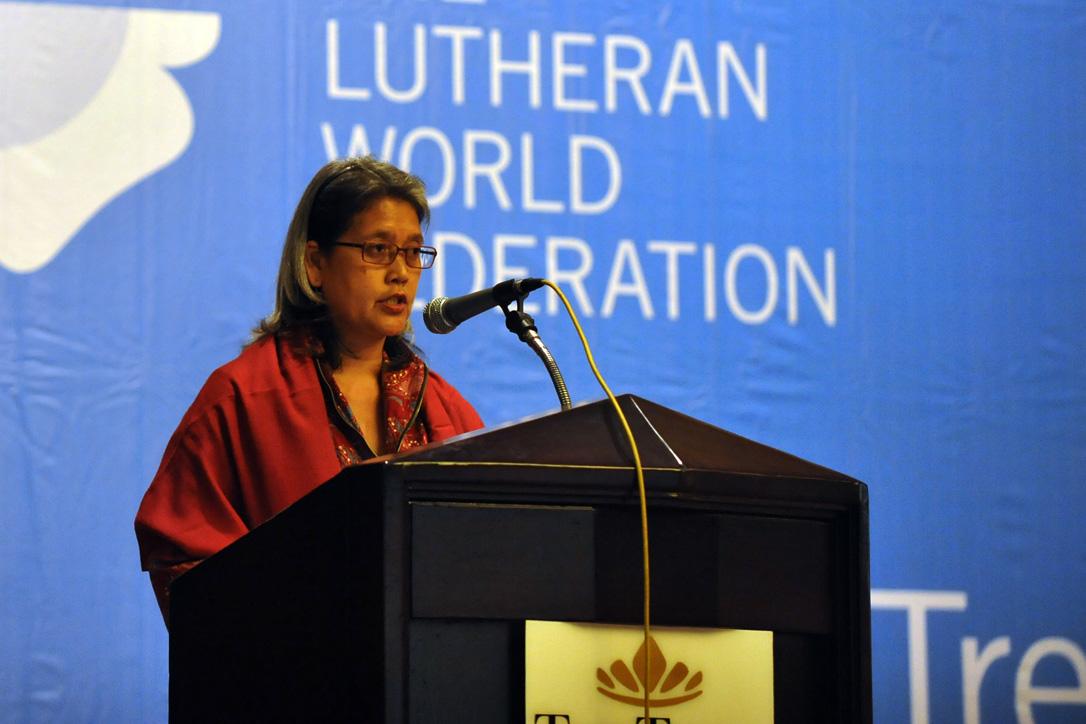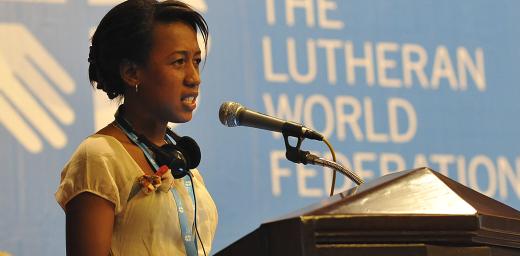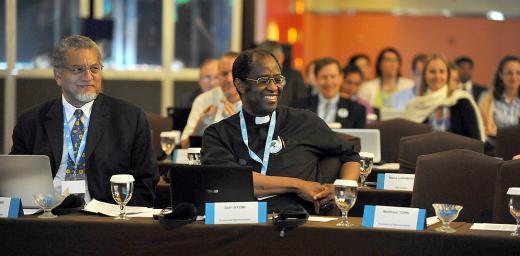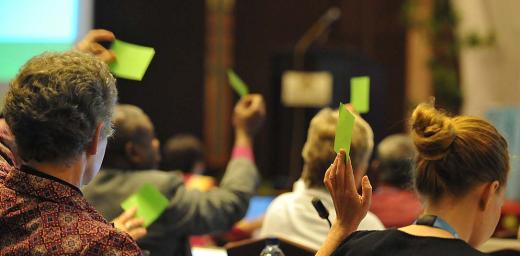Keynote Panel Addresses Interfaith Relations in Indonesia

Human rights advocate Kamala Chandrakirana speaking on rights for women, ethnic and religious minorities at the Council 2014 interfaith keynote panel. Photo: LWF/M. Renaux
“Crucial Role” of Religious Groups in Society
(LWI) – Addressing the root causes of inequality and caring for those who suffer most are the areas where religions can strongly contribute to society. This was the conclusion of the keynote panel on interfaith relations which was held on the first day of the 2014 meeting of the Council of the Lutheran World Federation (LWF) in Medan, Indonesia. Indonesia, which is a religiously diverse country, is known for having a unique tradition of interfaith relations. The keynote panel gathered two theological scholars from renowned religious institutes in Sumatra as well as an Indonesian human rights activist.
“I am witness to the crucial role of religious communities and institutions in building a nation where peace, justice and human rights are upheld” Ms. Kamala Chandrakirana, an Indonesian advocate of human rights, said. Having specialized in women`s rights, she related her experience about the close ties between rights for women and rights for ethnic and religious minorities in Indonesia.
“The religious communities I work with are not only spaces for open debate about matters of worship, they are also sites of power struggles among elements with differing views and interests, whose opportunities are shaped by larger processes in state and society”, she said. This places high responsibility on religious communities in shaping society: “We found that women who experience violence often seek justice not through state authorities, but religious leaders.” She called upon religious communities to assume responsibility for securing the coherence and integrity of a national legal system and law enforcement through accountable state institutions and to eliminate violence.
Joint activities in protecting the environment, disaster response and disaster preparedness were the areas Prof. Dr. Katimin, who teaches Islamic theology in the State Islamic Institute of North Sumatera in Medan, named as possible areas of Muslim-Christian cooperation in attending to the most vulnerable. He especially mentioned the response to the 2004 tsunami which heavily affected North Sumatra and brought Christians and Muslims together in humanitarian response.
“When one hand helps another, then interfaith encounter happens. People in the affected communities did not ask about religious teachings but worked together on addressing the needs,” Rev. Bonar H. Lumbantobing, pastor of the Huria Kristen Batak Protestan (HKBP) who is a lecturer at the Theological Seminary of the HKBP also recalled the disaster response in 2004. He cited many cases in Indonesian history, when religious communities “rose up to defend life” thereby creating situations of interfaith encounter.
Lumbantobing said that religious groups met when they “jointly entered the community development program. When people were against the destruction of the environment, the adherents of any faith met again. When the workers were demanding their rights, religious encounter ensued. As God is masked in selfless service, coming together in interfaith action for the poor and vulnerable is a way of serving God”, Lumbantobing explained.
“We believe that religious communities are part of society, and together with other agents such as non-governmental organizations can work for just and peaceful communities” Rev. Dr. Simone Sinn, Study Secretary for Interfaith Relations in the LWF explained. “The two theological institutes are the places where the future generation of religious leaders in Indonesia is formed. It is they who will shape the future role of religious communities in the Indonesian society.”
“Religious belief and interpretation, like culture, can also be a source of new understanding”, human rights activist Chandrakirana said. “The vibrancy of new thinking within religious communities – rooted in and responsive to the realities of today’s life – is a prerequisite for the continued relevance of religion to our future”.
Council 2014 News | Council 2014 Blog | Council 2014 Documents | Council Photos





